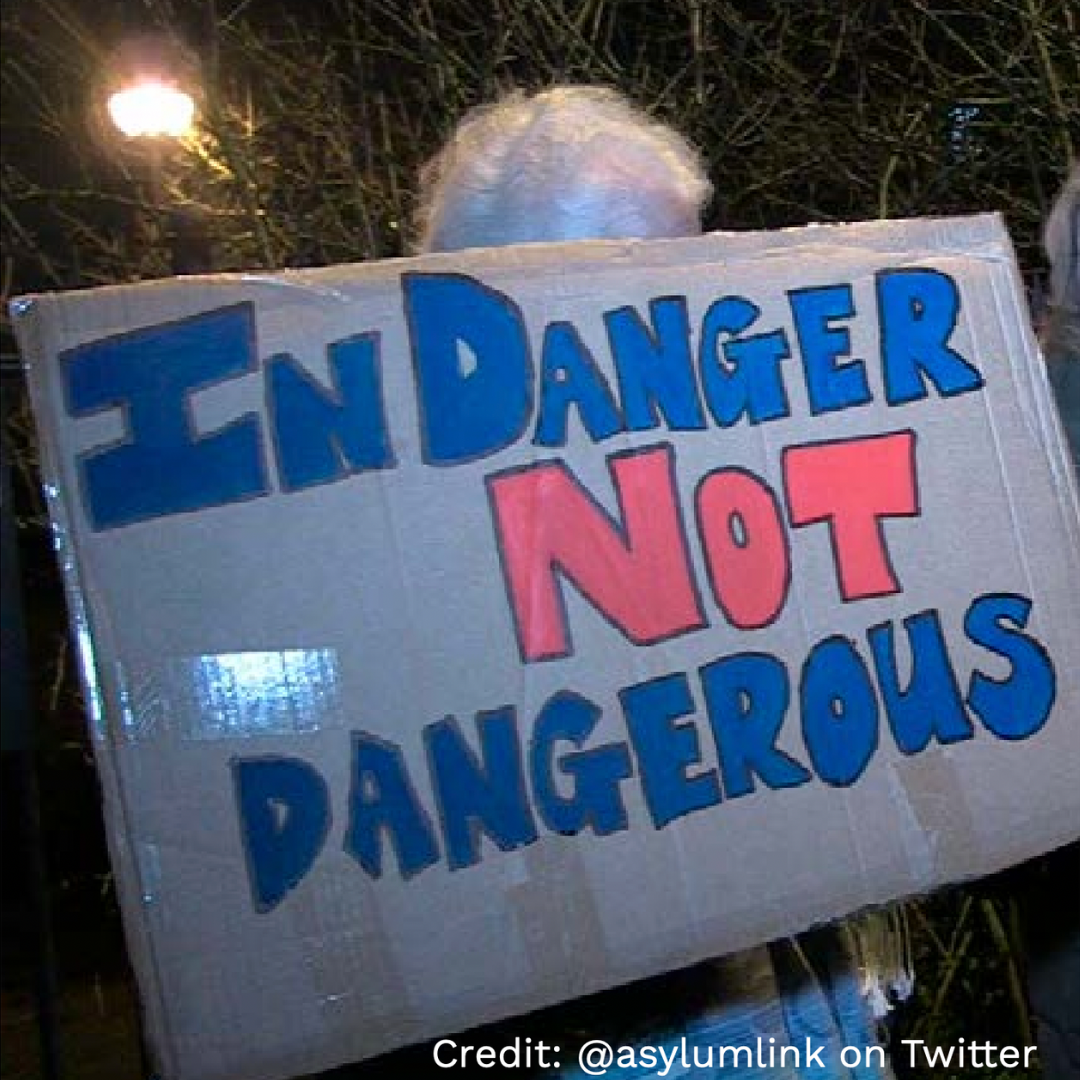 19 Mar
19 Mar
The End Violence Against Women Coalition has collaborated with HOPE not hate, a leading organisation exposing and opposing far-right extremism, to produce guidance for challenging far-right weaponisation of gender-based violence.
The guide offers practical advice on challenging online misinformation and far-right activity in a way that is sensitive to survivors of gender-based violence and does not reinforce harmful, victim-blaming attitudes and beliefs.
Women’s groups’ opposition to the far-right
In recent years, we’ve seen the far-right’s co-option of our movement to promote racist and white supremacist agendas. These include the likes of Stephen Yaxley-Lennon (aka Tommy Robinson) who use cases of child sexual exploitation by so-called “grooming gangs” (which they now often use as shorthand for Pakistani or brown Muslim men) as a rallying anti-immigration call.
These individuals and groups are often known misogynists who have never before campaigned against rape or child sexual exploitation – in fact, they tend to support an extremely traditional, patriarchal notion of the family and interpersonal relationships. They co-opt and weaponise our movement against gender-based violence whenever it serves their anti-migrant agenda.
The End Violence Against Women Coalition has long spoken out against this and vocally countered these narratives – from opposing Tommy Robinson’s 2019 European Elections campaign to the Home Secretary’s recent inaccurate and inflammatory claims about ‘Asian grooming gangs’.
How the far-right weaponise gender-based violence
Far-right groups often weaponise gender-based violence by accusing or sharing allegations made against asylum seekers in order to turn public opinion against them. These far-right groups capitalise on fears of violence and crime and often racialised narratives, galvanising violence towards asylum seekers, migrants, Muslims and people of colour. It can have profound effects on the community at large, because people are often unable or unwilling to distinguish asylum seekers from other marginalised groups in the community.
Defending survivors’ and migrants’ rights
In tackling the weaponisation of gender-based violence, it is crucial that we do not reinforce the harmful social attitudes that prevent survivors from coming forward, being believed by authorities and accessing justice and support.
The guide highlights that it is not human rights defenders’ role to investigate whether or not an allegation took place. Most acts of violence against women are not reported to the police, and for those who do report, conviction rates are poor. Instead, we need to be able to identify when allegations are being exploited to fuel racist agendas, address those who are coopting them and counter them in ways that provide a strong and unified opposition to both gender-based violence and racism.
Janaya Walker, Public Affairs Manager at the End Violence Against Women Coalition, said:
“There is undoubtedly a connection between the strategies by those deployed at the top in weaponising violence against women and girls and the strategies used by the far-right to attack migrants, asylum seekers and other marginalised groups. It is essential we stand together against wherever it occurs – whether online, in Westminster or elsewhere.
There is also a connection between the ways in which many of our institutions reproduce victim-blaming narratives, tropes around ideal victims and silence victims, and the ways in which victims and survivors of gender-based violence are silenced, blamed and disbelieved in wider society when they report or speak out about their experiences. So it is important that we challenge the weaponisation of violence against women and girls in a way that doesn’t reinforce harmful victim-blaming attitudes and a broader societal culture of not believing women.
The fight to end gender-based violence and uphold migrant rights are connected. We cannot and will not be divided as we work to build a better world for all.”
ENDS
Recommended ARTICLES
 19 Mar
19 Mar
 05 Mar
05 Mar
 27 Feb
27 Feb

